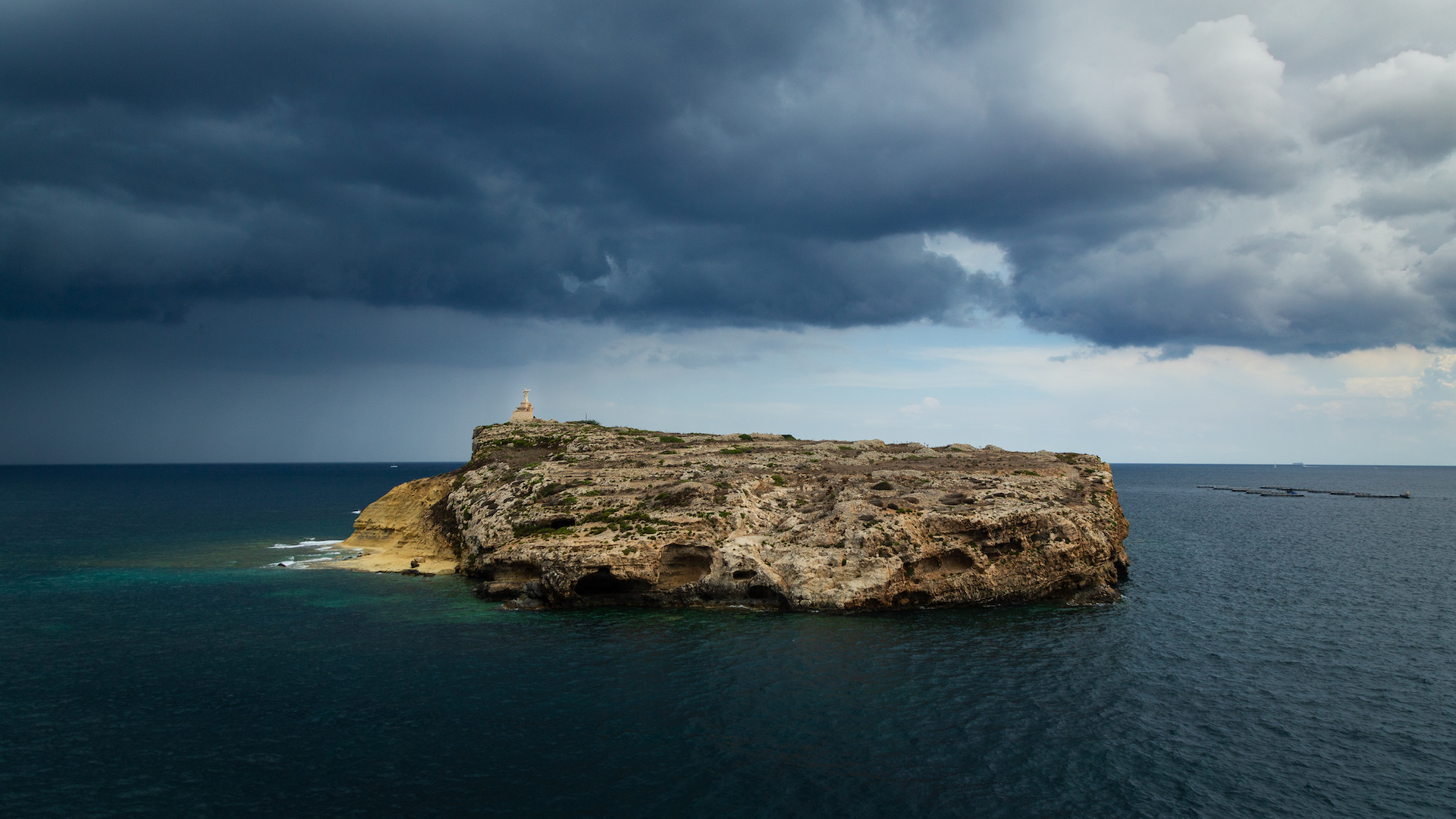
In the back corner of a large public cemetery on the island of Malta, there is a plot of unmarked graves. Unadorned cement slabs with no indication of who lies beneath. Nearby is a piece of paper in a plastic sleeve tacked to a tree, with a list of the grave numbers and the word “unknown.”
These are the graves of African migrants who risked their lives to get to Europe. They were headed for Italy but shipwrecked near Malta.
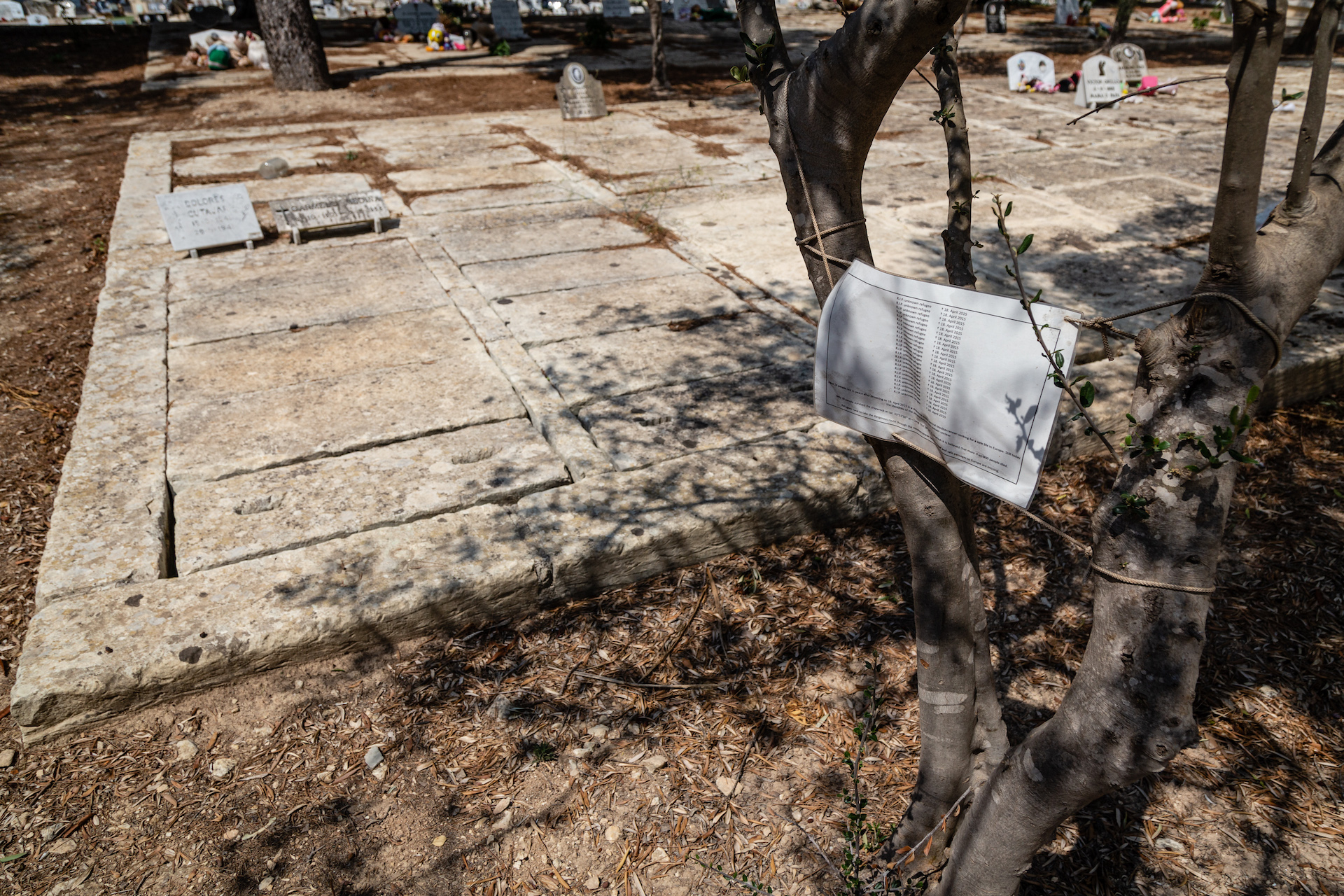
Only a piece of paper in Malta’s Addolorata Cemetery marks the resting place of twenty-four unidentified refugees and migrants, whose bodies were reclaimed from the Mediterranean Sea in 2015. Photo by Max Power.
Acts 27–28 describes another shipwreck that took place in AD 60. A terrible storm at sea destroyed the ship carrying the apostle Paul and 275 others. He was also headed to Italy, but the tempestuous sea threw them to shore in Malta instead. Because of God’s promise to Paul, they all survived.
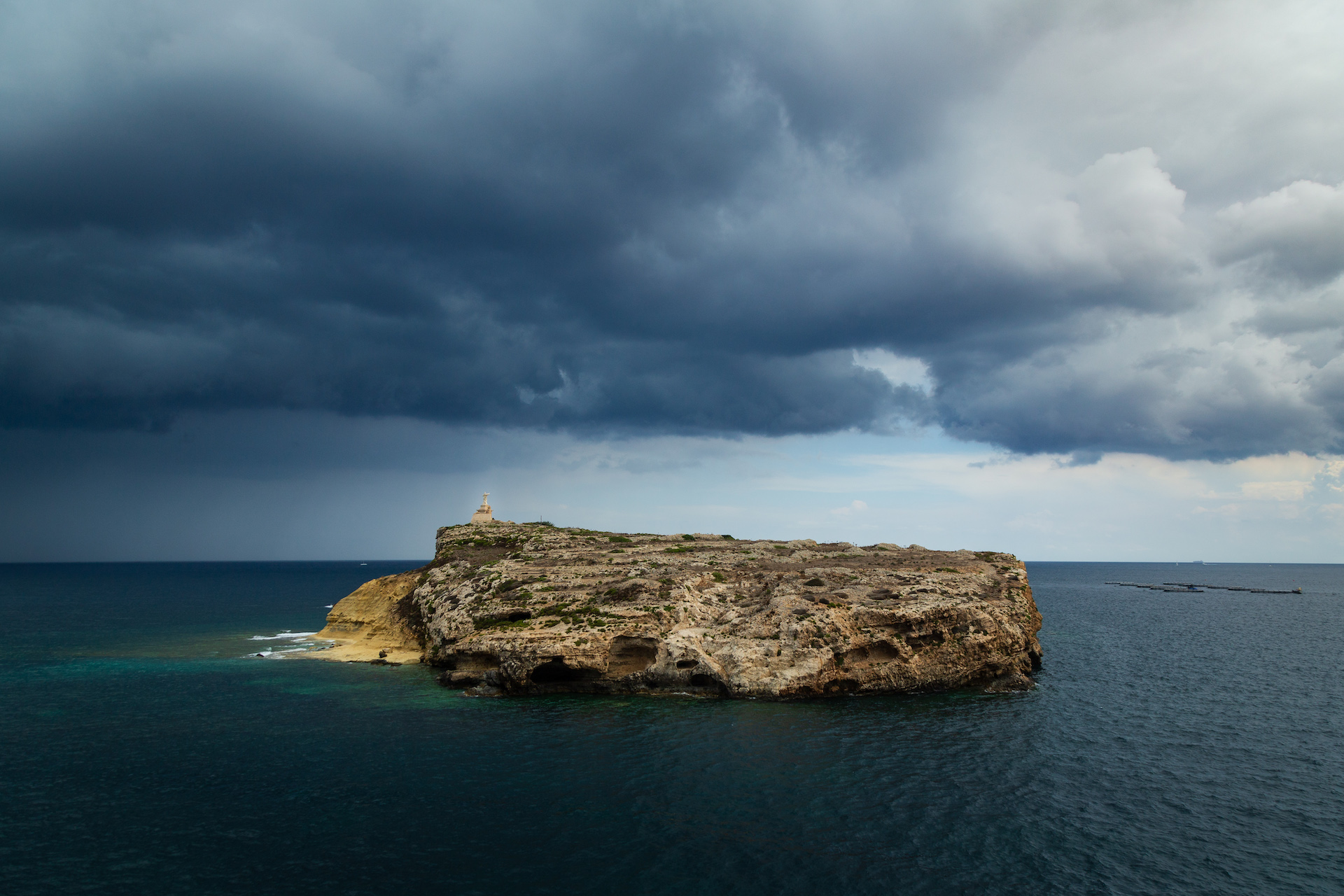
A storm rapidly approaches the small island traditionally attributed to Paul’s shipwreck at Malta in Acts 28. Photo by Max Power.
Today’s African migrants are not all so fortunate, as the graves in Malta testify. One in eighteen Africans who set out in search of a better life in Europe dies crossing the sea. Others survive but end up, like Paul, stuck in Malta. Unlike Paul, most are not treated with the “unusual kindness” Paul recorded in Acts 28:2.
Many boats have been stuck at sea while Malta, Italy, and other EU countries argue over who will take them. Migrants that Malta agrees to shelter are stuck between Africa and mainland Europe, unable to move forward and unable to thrive.
However, today’s global church is taking seriously the island’s biblical heritage of unusual kindness and is making efforts across denominations to meet the needs of migrants.
“Nobody comes to Malta on purpose, not Paul and not the migrants,” said Kim Hurst, a pastor with the Church of Scotland’s international mission located in the capital city of Valetta. “We want to do whatever we can to help them while they’re here.”
Malta’s Mixed Message
When migrants set out from Libya to get to mainland Europe, they have to pass by the island of Malta and then go yet another eighty miles. In flimsy boats with no experienced captain, unpredictable weather, and security forces patrolling the sea, some Africans are unable to go the distance. Although the tiny island was not their original goal, many have discovered that Malta is better than Italy right now.
In Italy, the borders to the rest of Europe are now tightly shut. The unemployment rate and the national debt in Italy continue to rise, which makes immigration a hot-button issue. Strictly enforced rules keep migrants in camps, unable to work for years while they wait for paperwork to be processed. That leaves migrants not only hopeless but in poverty and unable to send any money home, which is the biggest motivation for most migrants who risk everything by journeying to Europe. The situation in Italy has gotten so bad that some are starting to leave Italy and come back to Malta.
Malta’s Ministry of Labor said it needs thirty thousand foreign workers in the next four years to keep up with the 6 percent economic growth rate. The booming economy and the need for laborers have made Malta a place where migrants can find work.
That’s good news for the short term, but it creates an environment that will ultimately work against the migrants’ best interest. Work only provides a bit of money, not a future. Since the migrants have no path toward citizenship, they get no long-term benefits like health care, pension, or land ownership. They make enough to live on and send a little home, but it is a hand-to-mouth existence with no hope for improvement.
Churches and nonprofit organizations in Malta have recognized this dilemma and are reaching out to the growing migrant community.
People Making a Difference
Pastor Ahmed Bugri is a man with many titles. He is an immigrant from Ghana, an immigration lawyer, a professor, and an activist for refugees and migrants in Malta. He knows intimately the problems created by standoffs between European governments and African migrants because he’s lived through them.
“The church is an independent player that does not look at the status of a person; it looks at a human being”
“In the middle is a void where the church comes in because the church is an independent player that does not look at the status of a person; it looks at a human being,” he said. “The church offers not only support but offers shelter and asylum.”
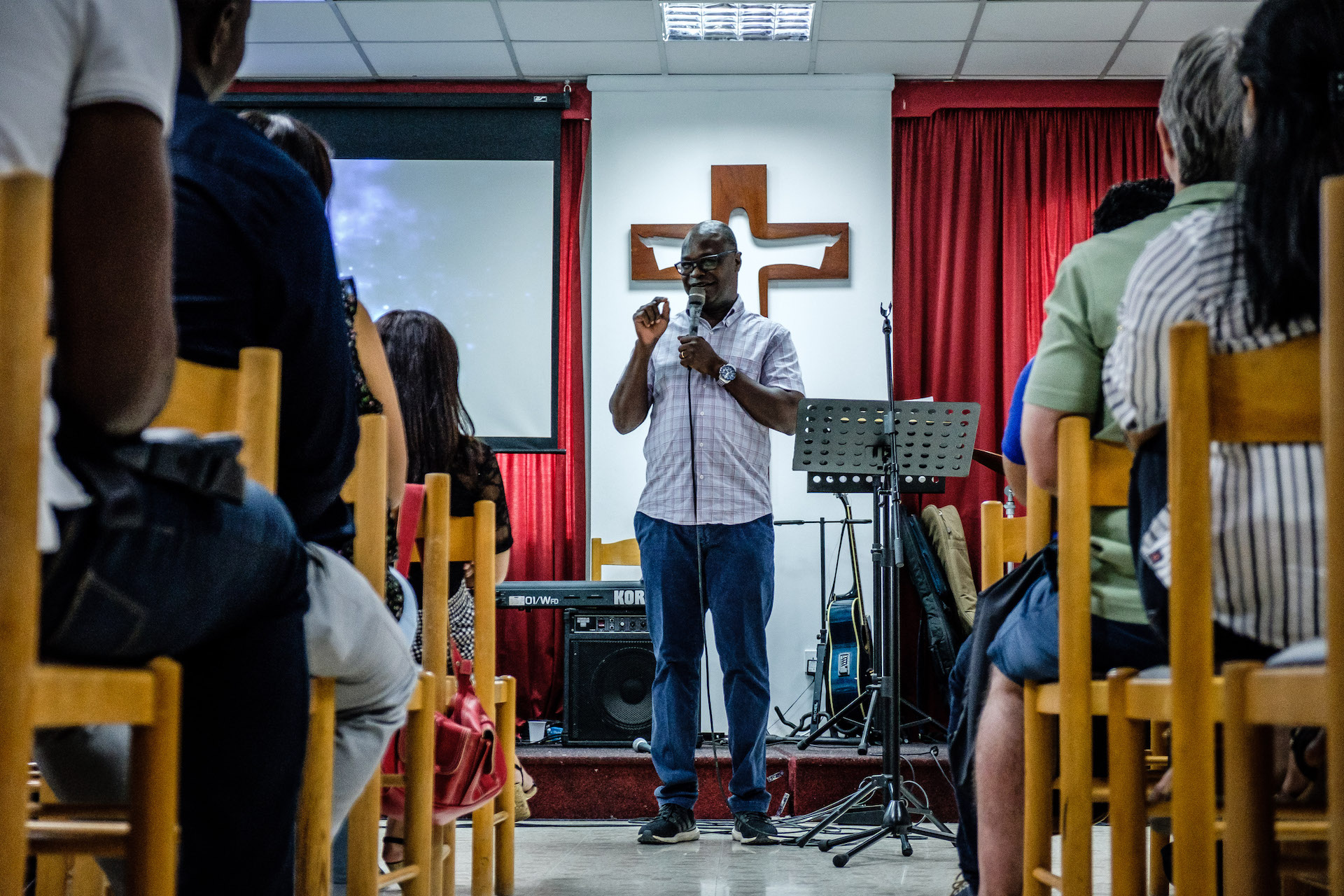
An international church in Valletta, Malta, hosts many African migrants and refugees. Pastor Ahmed Bugri leads his congregation to ministry among refugees in Malta. Photo by Hugh Johnson.
Pastor Bugri leads an international church that is made up mostly of migrants. Many, like him, come from Muslim backgrounds. They come to the church because they are searching for community. Pastor Bugri sees this as a great opportunity to reach them with the gospel, but not just with words.
“The only way to convince a Muslim that Christ is alive is to bring him into a living relationship with Jesus. It doesn’t take a tract. It takes time, it takes ministering to them, it takes going to them,” he said. “This is where the role of the church is so important.”
With that in mind, Bugri offers counseling services, education, legal services, and mental health support.
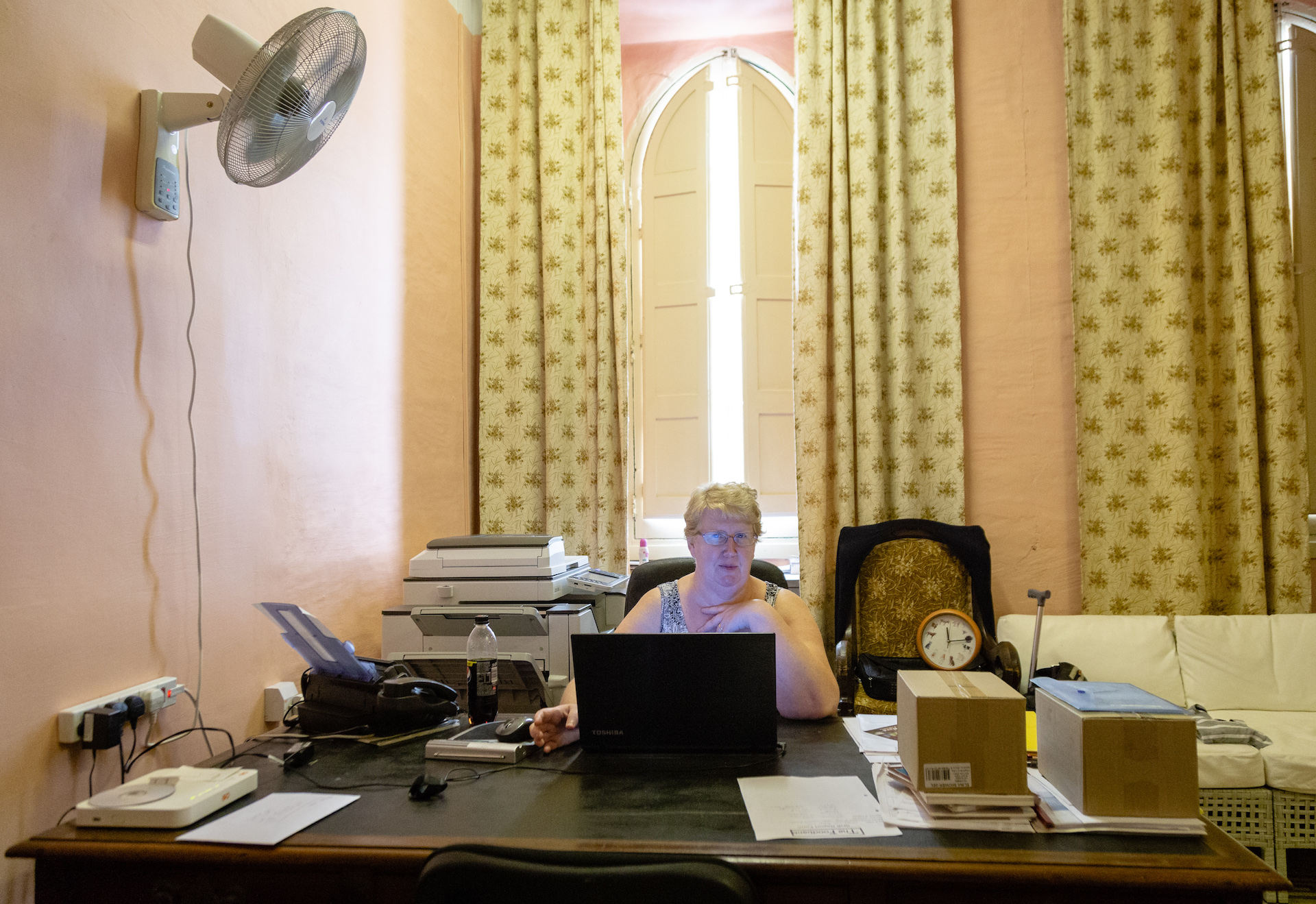
Rev. Kim Hurst of the Church of Scotland in Valletta, Malta, in her office. The church runs several ministries to assist migrants and refugees such as a food bank, language courses, job training and microloans. Photo by Max Power.
Rev. Kim Hurst, a minister of the Church of Scotland mission to refugees, would agree. The ministry she runs has begun a microfinance initiative to help refugees and migrants become self-supporting. They also offer a food pantry, clothes closet, and English classes.
Friar Dionysius Mintoff has taken life among refugees a step further. At eighty-eight years old, he has been living and working on the grounds of the church in Hal Far, Malta, for forty years. He has established a residential center for refugees and migrants on the grounds under the auspices of The Peace Lab, which he established in 1971. Inside the open compound is a peaceful refuge with small houses, park benches, shady trees, and some semblance of home.
His open heart and practical ministry so inspired Eric, a visiting migrant student from Italy, that Eric came back to spend the summer of 2018 living on the grounds, helping the men who live there and supporting Fr. Mintoff.
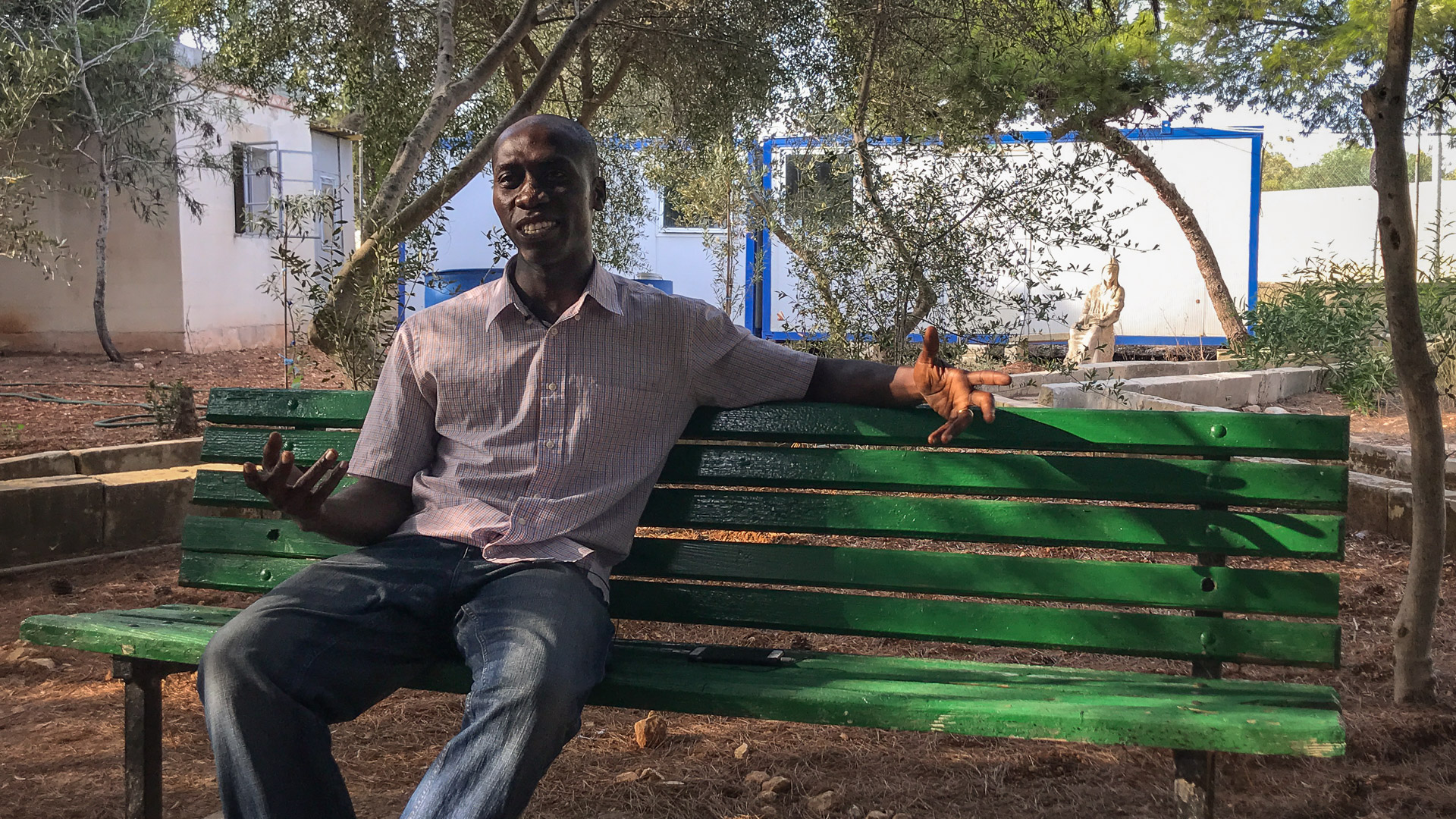
Eric, a migrant studying in Italy, spent his 2018 summer break at Friar Mintoff’s Peace Lab ministering to migrants in need. Photo by Rodney Calfee.
Although Eric’s friends used their summer to travel around seeing Europe, he didn’t see his summer with refugees as a sacrifice. When talking about his experience, he summed up what Pastor Ahmed had said the church should be about.
“I feel somehow privileged to be able to share in this life with these men. It is a gift of God.”
Ports for Prayer
We, too, can care for refugees and migrants through prayer.
- Pray for the believers in Malta who are serving migrants and refugees in Malta. Pray for the gospel to be at the forefront of their efforts.
- Pray for the Maltese church to catch the vision of reaching into the refugee/migrant communities with the gospel.
- Pray for Africans struggling to find a viable way to survive and thrive in Malta.
You can also directly support IMB’s work among refugees by visiting Baptist Global Response. If you are interested in staying informed about the specific refugee community in Malta, contact the Peace Lab in Hal far, Malta, the Church of Scotland’s refugee ministry, or follow Dr. Ahmed Bugri on Twitter.
Karen Pearce is a writer for IMB living in Prague. She has dedicated much of the past three years researching and writing about the global refugee situation and is the writer for the International Mission Study. You can follow Karen on Instagram.

